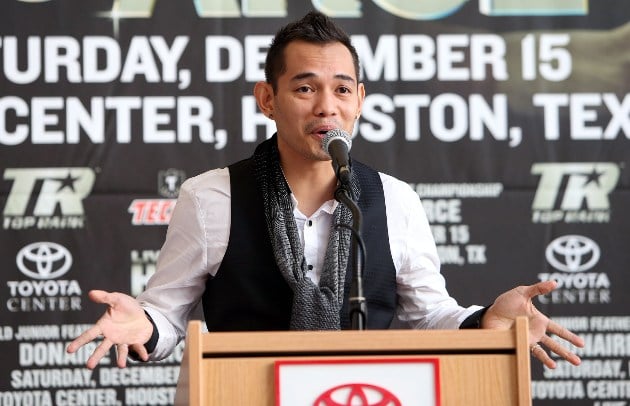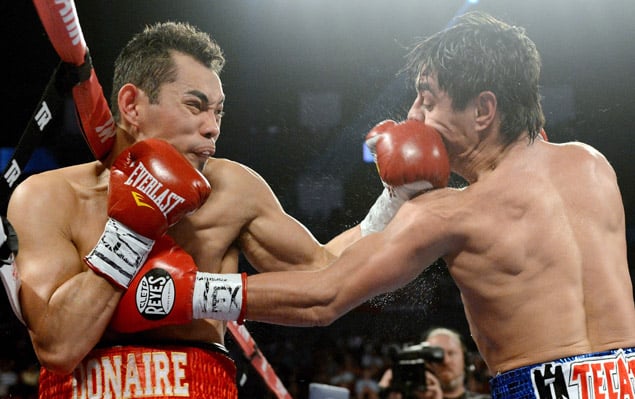Donaire on past suicide attempt: ‘I felt like I didn’t belong’


RING and WBO junior featherweight champion Nonito Donaire has been formidable in the squared circle as of late, becoming a titleholder in a fourth division and totaling as many victories over the course of 2012.
But in an unflinching interview with Sports Illustrated’s Chris Mannix that is as startling as it is compelling, the 30-year-old native of the Philippines reveals how a low self-esteem and depression nearly led to his suicide at the age of 10.
“I felt like I didn’t belong,” the story quotes Donaire, who tried to hang himself from his bunk bed. “My family didn’t have much. We didn’t need an extra mouth to feed.”
Nowadays, Donaire (31-1, 20 knockouts) is riding a wave of success, having recently married his long-time love, Rachel Donaire, become a pioneer with his 24-hour-per day commitment to year-round, random drug testing that is being conducted by the Voluntary Anti-Doping Association (VADA), and his likely selection as Fighter Of The Year by a number of reputable boxing entities.
In addition, Donaire’s sensational third-round knockout earlier this month of Mexican four-division titleholder Jorge Arce resurrected the hopes of his Filipino countrymen as it came a week after Philippines national hero Manny Pacquiao was left lying face-first and motionless in a sixth-round knockout loss to Mexican four-division titlewinner Juan Manuel Marquez.
Donaire made his 122-pound debut with February’s split-decision over ex-beltholder Wilfredo Vazquez Jr., and followed that up with a unanimous decision over South Africa’s Jeffrey Mathebula for the IBF title in July.
In October, Donaire’s ninth-round stoppage of Toshiaki Nishioka ended the loser’s run of 16-consecutive victories that had included 10 knockouts, handing the legendary Japanese fighter his first loss since March of 2004 — a span of eight years and seven months.
But the man named “”The Filipino Flash” contends that no matter his success, he will never forget where he came from, or the fact that he very nearly ceased to exist.

“Whether or not you’re a top athlete, there’s always those past experiences or those past situations that made you who you are, or that made why the things that you do are the things that you do. Like there’s always that thing that will always remind us of who we are, and what we’ve been through,” said Donaire, a resident of San Leandro, Calif.
“So if people can see it that way and relate to me and my experiences in a positive way, then that would always be a good honor for me, because I think that it doesn’t matter who you are. You can be the best guy in a sport or the best athlete or whoever it is. We’re still human, and that’s what it all comes down to is that we’re human.”
Photo by Chris Farina, Top Rank
Photo by Naoki Fukuda
Lem Satterfield can be reached at [email protected]















